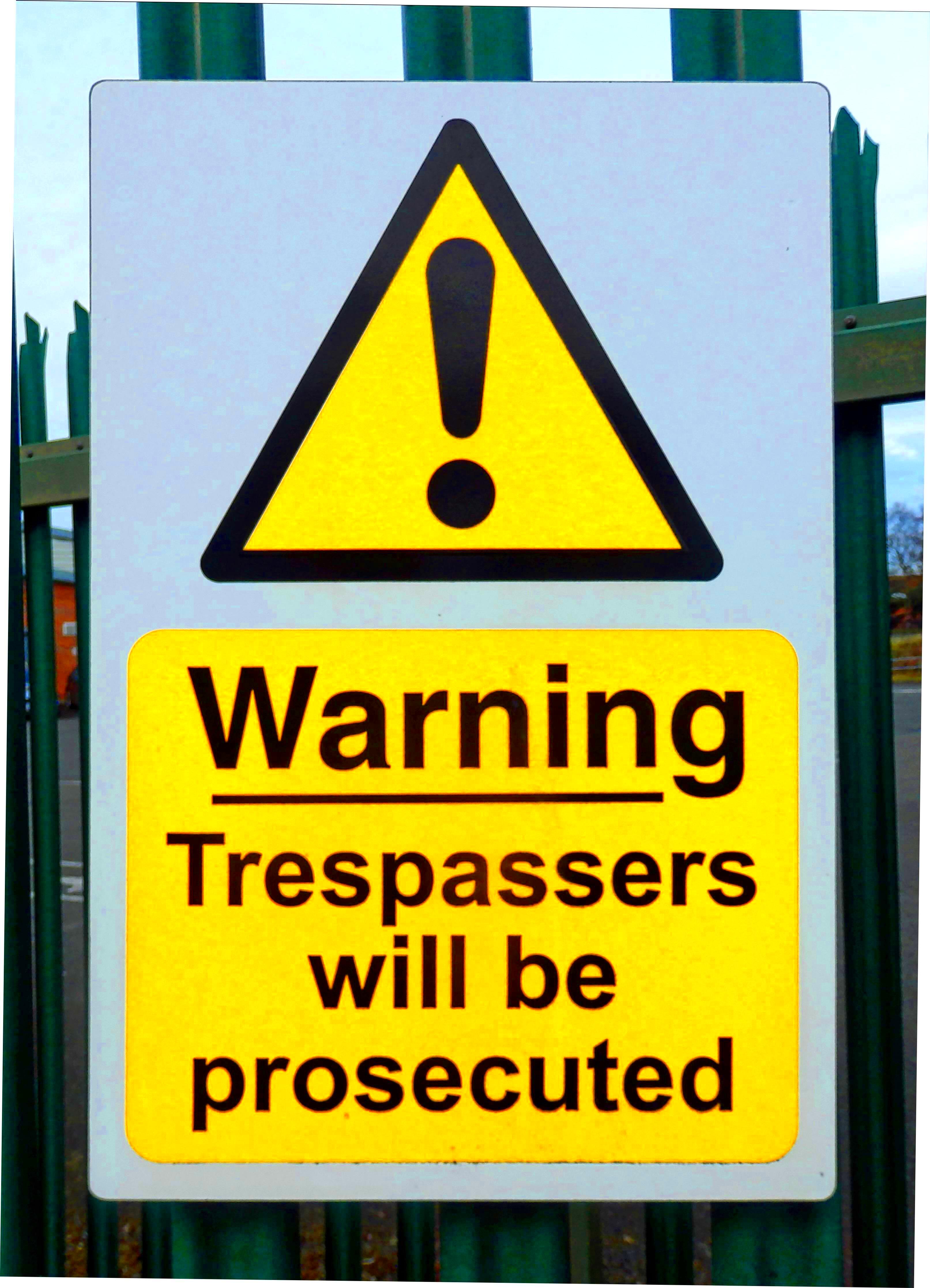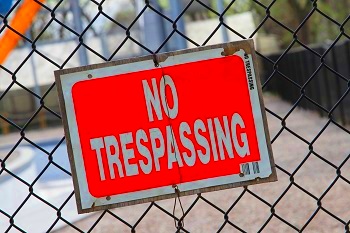Virginia Trespassing Laws and Legal Boundaries
Understanding trespassing laws is essential for both property owners and individuals in Virginia. These laws help maintain a balance between the rights of landowners and the rights of those who might inadvertently enter someone else’s property. Whether you’re a homeowner wanting to protect your space or a visitor hoping to avoid legal trouble, knowing these laws can guide your actions. Let’s explore what constitutes trespassing, the different types of offenses, and the implications of these laws in Virginia.
Definition of Trespassing in Virginia

Trespassing in Virginia is defined as entering or remaining on someone else’s property without permission. This can occur in various scenarios, from walking through a neighbor’s yard to unlawfully entering a building. The law is clear about the rights of property owners to control who enters their land. Here are some key points about the definition:
- Consent: If the property owner has not given permission for entry, it may be considered trespassing.
- Intent: Trespassing can be intentional or unintentional, but even unintentional entry can lead to legal consequences.
- Exceeding Permission: Entering a property for one purpose but then engaging in another activity may also be classified as trespassing.
Types of Trespassing Offenses
Virginia categorizes trespassing offenses into several types, each with varying degrees of severity. Understanding these types can help clarify the legal landscape:
| Type of Offense | Description | Punishment |
|---|---|---|
| Simple Trespass | Entering a property without permission, such as walking through someone’s yard. | Class 3 misdemeanor |
| Aggravated Trespass | Entering a property with the intent to commit a crime or cause harm. | Class 6 felony |
| Trespass after Being Forbidden | Returning to a property after being told not to do so. | Class 1 misdemeanor |
Each of these offenses can have serious consequences, impacting a person’s record and future opportunities. It’s crucial to respect property boundaries to avoid these legal issues.
Legal Boundaries for Trespassing
In Virginia, legal boundaries for trespassing are defined by the law and often reflect the expectations of property owners. Understanding these boundaries helps clarify where you can and cannot go without facing legal repercussions. Property lines are not always marked clearly, which can lead to confusion. Here are some essential aspects of legal boundaries to consider:
- Marked Boundaries: Property owners often mark their boundaries with fences, signs, or natural barriers like hedges. These markings serve as clear indicators of private property.
- Unmarked Boundaries: If a property is not clearly marked, it can be harder to determine where trespassing begins. In such cases, courts may look at common sense and local knowledge.
- Public vs. Private Land: Trespassing laws primarily apply to private property. However, public lands also have regulations regarding where individuals can go, especially in parks or federal areas.
It’s important to remember that entering private property without permission can lead to legal consequences. Always be aware of your surroundings and respect signs indicating private land to avoid any misunderstandings.
Defenses Against Trespassing Charges
If you find yourself facing trespassing charges, there are several defenses you might consider. Knowing these defenses can help protect your rights and possibly dismiss the charges. Here are some common defenses:
- Lack of Intent: If you entered the property accidentally or without the intention to trespass, this can be a strong defense.
- Permission: If you can prove that the property owner gave you permission to enter, you cannot be charged with trespassing.
- Public Necessity: In some situations, entering a property may be justified to prevent harm or danger, such as seeking shelter from a storm.
- Invalid Signage: If the property did not have proper signs indicating that entry was forbidden, this may also work in your favor.
Each case is unique, so it’s essential to consult a legal professional to explore your options if you are charged with trespassing.
Punishments for Trespassing in Virginia
The punishments for trespassing in Virginia can vary based on the severity of the offense. Understanding these potential consequences can help you recognize the importance of following trespassing laws. Here’s a breakdown of the punishments:
| Type of Offense | Punishment | Potential Consequences |
|---|---|---|
| Simple Trespass | Class 3 misdemeanor | Up to 30 days in jail and/or a fine of up to $500 |
| Aggravated Trespass | Class 6 felony | 1 to 5 years in prison and/or a fine of up to $2,500 |
| Trespass after Being Forbidden | Class 1 misdemeanor | Up to 12 months in jail and/or a fine of up to $2,500 |
In addition to criminal penalties, a trespassing conviction can have long-term effects on your personal and professional life, including difficulties in employment and housing. Therefore, it’s crucial to take trespassing laws seriously and understand the risks involved.
Importance of Property Signs and Notices
Property signs and notices play a crucial role in preventing trespassing. These markers communicate to the public that an area is private and that unauthorized entry is not allowed. Let’s look at why having clear signs is essential:
- Establishing Boundaries: Signs help define property lines, making it clear where private property begins and ends. This can reduce misunderstandings and unintentional trespassing.
- Legal Protection: Displaying “No Trespassing” signs can strengthen a property owner’s case if they need to pursue legal action against trespassers. These signs demonstrate that the owner has taken steps to protect their property.
- Awareness: Signs alert people to the presence of surveillance, dogs, or other security measures. This awareness can deter potential trespassers.
- Respect for Privacy: Clear notices remind visitors and passersby to respect the privacy and property rights of others, fostering a culture of respect within the community.
Investing in proper signage is a small but significant step property owners can take to safeguard their space and reduce the chances of trespassing incidents.
How Trespassing Affects Landowners and Tenants
Trespassing can have various negative effects on both landowners and tenants. Understanding these impacts can highlight the importance of maintaining clear boundaries and addressing trespassing issues promptly:
- Property Damage: Unauthorized individuals may cause damage to property, whether intentionally or accidentally. This can lead to costly repairs and a decrease in property value.
- Safety Concerns: Trespassers can pose safety risks to tenants and property owners. Unknown individuals on the premises may lead to theft, vandalism, or other criminal activities.
- Legal Issues: Property owners may face legal battles if they need to evict trespassers or if a trespassing incident results in injury. This can be time-consuming and expensive.
- Disruption of Peace: Trespassing can create a sense of insecurity and unease for tenants and neighbors, disrupting their peace and enjoyment of their property.
Ultimately, proactive measures to address trespassing can help maintain a secure and enjoyable environment for everyone involved.
Frequently Asked Questions
Many people have questions about trespassing laws and how they apply in Virginia. Here are some of the most common inquiries:
- What constitutes trespassing in Virginia? Trespassing generally involves entering or remaining on private property without permission. This includes unintentional entry.
- Can I be charged with trespassing if I didn’t see a “No Trespassing” sign? Yes, but having clear signs can help your case if you need to dispute the charges.
- What should I do if I encounter a trespasser? If you feel safe, ask the individual to leave. If they refuse, contact local law enforcement.
- Are there any exceptions to trespassing laws? Yes, there are exceptions, such as emergencies or if you have the property owner’s consent to enter.
Understanding these common questions can help clarify the complexities surrounding trespassing laws and your rights as a property owner or visitor.
Conclusion on Virginia Trespassing Laws
In conclusion, understanding Virginia’s trespassing laws is vital for both property owners and visitors. These laws define what constitutes trespassing, the various types of offenses, and the potential penalties involved. Clear property signs and notices can significantly help in preventing unintentional trespassing and in establishing legal boundaries. For landowners and tenants, trespassing can lead to safety concerns, property damage, and legal issues. By being informed about your rights and responsibilities, you can navigate the complexities of trespassing laws more effectively, ensuring a respectful and safe environment for everyone involved.


